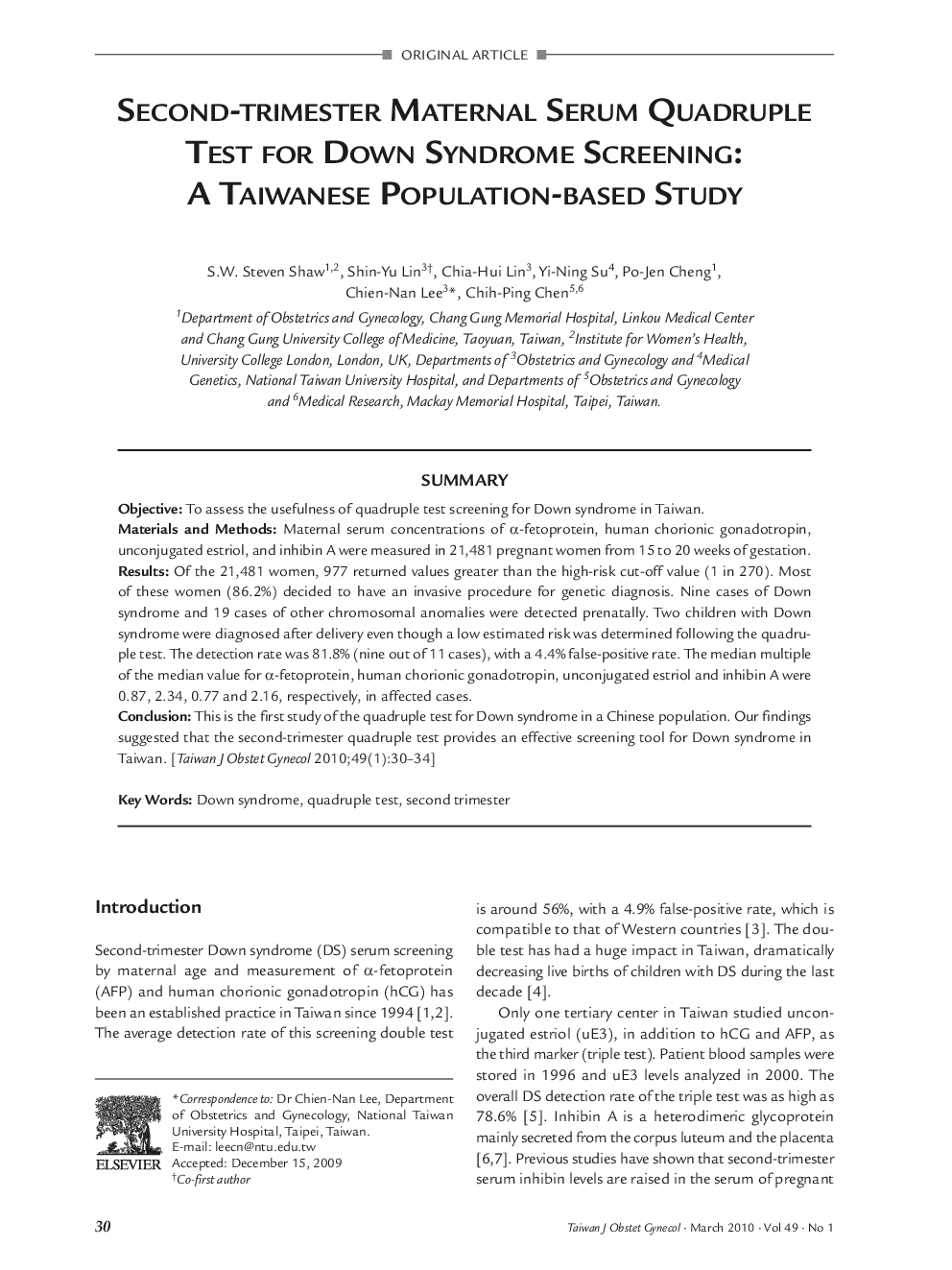| Article ID | Journal | Published Year | Pages | File Type |
|---|---|---|---|---|
| 3976032 | Taiwanese Journal of Obstetrics and Gynecology | 2010 | 5 Pages |
SummaryObjectiveTo assess the usefulness of quadruple test screening for Down syndrome in Taiwan.Materials and MethodsMaternal serum concentrations of a-fetoprotein, human chorionic gonadotropin, unconjugated estriol, and inhibin A were measured in 21,481 pregnant women from 15 to 20 weeks of gestation.ResultsOf the 21,481 women, 977 returned values greater than the high-risk cut-off value (1 in 270). Most of these women (86.2%) decided to have an invasive procedure for genetic diagnosis. Nine cases of Down syndrome and 19 cases of other chromosomal anomalies were detected prenatally. Two children with Down syndrome were diagnosed after delivery even though a low estimated risk was determined following the quadruple test. The detection rate was 81.8% (nine out of 11 cases), with a 4.4% false-positive rate. The median multiple of the median value for a-fetoprotein, human chorionic gonadotropin, unconjugated estriol and inhibin A were 0.87, 2.34, 0.77 and 2.16, respectively, in affected cases.ConclusionThis is the first study of the quadruple test for Down syndrome in a Chinese population. Our findings suggested that the second-trimester quadruple test provides an effective screening tool for Down syndrome in Taiwan.
